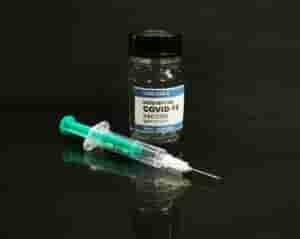A new study that said COVID-19 vaccinations cause heart inflammation has been withdrawn. The withdrawal is because there was a miscalculation regarding the alleged side effects, which was subsequently hyped by anti-vaxxers.
The Initial Study Related To Heart Inflammation
The first study claiming that one in 1,000 recipients of the COVID-19 vaccines could get heart inflammation or myocarditis was a preprint study published on MedRxiv. MedRxiv is a website that publishes studies that have not been peer-reviewed yet.
Such study is now withdrawn after a miscalculation that overestimated the risk of the named heart condition. Business Insider also reports that there is more risk of getting myocarditis from COVID-19 itself than from the COVID-19 vaccines.
The study was first published on September 16, and it was conducted by researchers from The University of Ottawa Heart Institute. The researchers calculated the 1:1,000 ratio by dividing the number of COVID-19 vaccines in Ottawa by the number of incidences of myocarditis. Using this calculation, they arrived with the risk of myocarditis being 1 in 1,000 or 0.1 percent.

However, Business Insider said that the numbers used in the study are wrong because the authors underestimated the number of vaccines delivered. Hence, such vaccines in the computation are 25 times smaller than the actual amount. The researchers claimed the number of vaccines in Ottawa was 32,379, but in reality, it was 854,930.
After its publication, many anti-vaxxers resorted to the data is presented to promote the idea that COVID-19 vaccines are not safe.
Researchers Withdraw Their Study
Business Insider quoted the researchers after they withdrew their study on September 24. They said, “Our reported incidence appeared vastly inflated by an incorrectly small denominator (ie number of doses administered over the time period of the study). We reviewed the data available at Open Ottawa and found that there had indeed been a major underestimation, with the actual number of administered doses being more than 800,000. In order to avoid misleading either colleagues or the general public and press, we the authors unanimously wish to withdraw this paper on the grounds of incorrect incidence data.”
The University of Ottawa Heart Institute also issued a statement of apology for the misinformation spread from the study.


